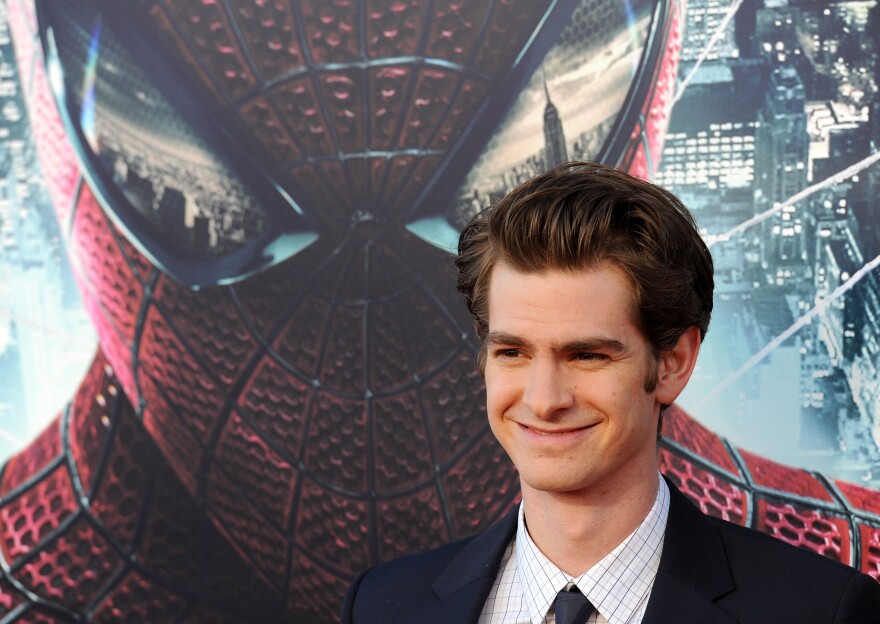Andrew Garfield who can be seen in two films in theaters now,"Silence" and "Hacksaw Ridge," reflects on Meryl Streep's Golden Globes speech and opens up about how he finds meaning in his work as an artist, Oscar-winning editor William Goldenberg shares secrets from the editing room and a new exhibit at the J. Paul Getty Museum has artists turning their attention to the news as a muse
'Live By Night' film editor says his job is part 'pleaser, part psychologist'
Here’s a challenge for you: think of your favorite film — you probably know the stars, maybe the director and perhaps even the screenwriter. But how about the editor?
Editors represent one of the most under-appreciated yet crucial elements to good movie making. They have to transform weeks — and often months — of footage into a two-hour film. On top of that, they have to negotiate the desires of the director with those of the studio, which requires not only great skill and patience, but also a knack for diplomacy.
William Goldenberg won an Oscar for editing Ben Affleck’s 2012 film, “Argo,” and he has been nominated four other times. He also edited Affleck’s latest film “Live By Night."
When The Frame's John Horn spoke with Goldenberg recently, he talked about his mentor, Michael Kahn (Steven Spielberg’s longtime editor), and described the kinds of personality traits that are essential to a good film editor.
Interview Highlights:
On the personality traits of a good editor:
Strangely enough, I think I consider editors to be "pleasers." We're somebody who likes to help someone do their jobs. I think that being someone who really likes to help support someone and not be out in the forefront is an important personality trait. You're dealing with movies that could cost hundreds of millions of dollars and with lots of fragile personalities — and lots of big personalities — so I also consider my job to be part psychologist because you have to bring all these different voices together in the same room — whether that be the producers, the studio heads or the director and make them see all eye-to-eye. That can be very challenging.
On how he solves tough editing situations:
There have been a few times where I've just drawn a blank and not known how to put something together. Generally what I'll do is let it sit, if there's the time to do that — just let it sit for a couple of days and hopefully I'll wake up in the middle of the night with an idea, or just some place to start, or finding something to hang on to where you know in the sequence is going to work. And then you build off of that.
I always feel like it's my fault. It may be bad writing, bad directing, bad acting and the shots are wrong, but when it ends up with me, I feel like this overwhelming obligation to find a way to solve the problem. Michael Kahn used to say to me, "The first rule of editing is take out the bad stuff." He said, "Usually it's not a huge course correction." Usually you're hovering around the solution and it's often times a very simple solution that will solve the biggest problems.
On "saving" Ben Affleck's "Gone Baby Gone":
I was really scared about going into that movie because I heard they'd shot the film and he wanted to meet with me and they had let the original editor go. And that's always a red flag that something's not working or it's a first time director. I knew about Ben what everybody knew about Ben — sort of what I'd read in the paper. But as soon as I sat down with him, I found this thoughtful, intelligent man who really had an incredible breadth of knowledge about film and filmmaking and what kind of film he wanted to make. ["Gone Baby Gone"] was sort of a love letter to Boston, so he'd gone around with a second unit camera crew and just shot people all over the streets of Boston. So integrating all of that into a cohesive movie was really a challenge, but every movie is fraught with challenges. I think Ben is incredibly generous, but it was certainly his film and a team effort in the editing room.




